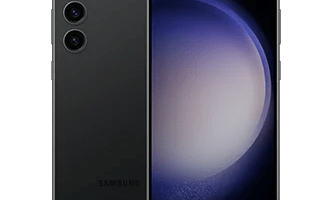
In 1965, two Harvard students hacked together a computerized matchmaking program—a punch-card survey about a person and their ideal match, recorded by the computer, then crunched for compatibility—and the world’s first dating site was born. Over the next half-century, the idea would evolve into Match.com and eHarmony, OkCupid and Grindr, Tinder and Bumble, and Facebook Dating. But even then, the basic truth was the same: Everyone wants to find love, and with a computer to narrow the pool, it gets a little easier. Punch-cards turned to finger-swipes, but the computerized matchmaking magic remained the same.
In the decades that people have been finding love online, there has been surprisingly little anthropological research on how technology has changed the dating landscape. There are some notable exceptions—like Dan Slater’s 2013 book Love in the Time of Algorithms—but research that takes stock of the swiping, matching, meeting, and marrying of millions of online daters has been thin, when it exists at all.
A new survey from the Pew Research Center updates the stack. The group last surveyed Americans about their experiences online dating in 2015—just three years after Tinder launched and, in its wake, created a tidal wave of copycats. A lot has changed: The share of Americans who have tried online dating has doubled in four years (the survey was conducted in October 2019) and is now at 30 percent. The new survey was also conducted online, not by phone and “for the first time, gives us the ability to compare experiences within the online dating population on such key dimensions as age, gender and sexual orientation,” said Monica Anderson, Pew’s associate director of internet and technology research, in a Q&A published alongside the survey.
The new survey is far from sweeping, but it qualifies with new data many of the assumptions about online dating. Pew surveyed 4,860 adults from across the United States, a sample that’s small but nationally representative. It asked them about their perceptions of online dating, their personal usage, their experiences of harassment and abuse. (The term “online dating” refers not just to websites, like OkCupid, but also apps like Tinder and platform-based services like Facebook Dating.) Half of Americans said that online dating had “neither a positive nor negative effect on dating and relationships,” but the other half was divided: a quarter said the effect was positive, a quarter said it was negative.
“Americans who have used a dating site or app tend to think more positively about these platforms, while those who have never used them are more skeptical,” Anderson notes in her Q&A. But there are also demographic differences. From the survey data, people with higher degrees of education were more likely to have positive perceptions of online dating. They were also less likely to report receiving unwanted, explicit messages.
Young adults—by far the biggest users of these apps, according to the survey—were also the most likely to receive unwanted messages and experience harassment. Of the young women Pew surveyed, 19 percent said that someone on a dating site had threatened violence. These numbers were even higher for young people who identify as lesbian, gay, or bisexual, who are also twice as likely to use online dating than their straight peers. “Fully 56% of LGB users say someone on a dating site or app has sent them a sexually explicit message or image they didn’t ask for, compared with about one-third of straight users,” the survey reports. (Men, however, are more likely to feel ignored, with 57 percent saying they didn’t get enough messages.)
None of this is surprising, really. Unpleasant encounters on dating platforms are well documented, both by the media and the public (see: Tinder Nightmares), and have even spurned the creation of new dating platforms, like Bumble (its original tagline: “The ball is in her court”). Researchers have made these observations before, too. In a 2017 survey on online harassment, Pew found that young women were much likelier than young men to have received unwanted and sexually explicit images.









